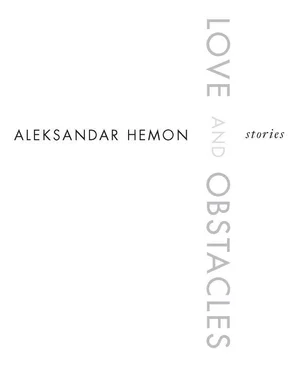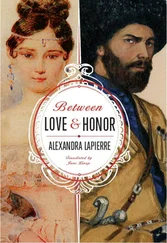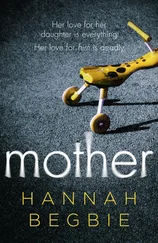Aleksandar Hemon - Love and Obstacles
Здесь есть возможность читать онлайн «Aleksandar Hemon - Love and Obstacles» весь текст электронной книги совершенно бесплатно (целиком полную версию без сокращений). В некоторых случаях можно слушать аудио, скачать через торрент в формате fb2 и присутствует краткое содержание. Издательство: Penguin USA, Inc., Жанр: Старинная литература, на английском языке. Описание произведения, (предисловие) а так же отзывы посетителей доступны на портале библиотеки ЛибКат.
- Название:Love and Obstacles
- Автор:
- Издательство:Penguin USA, Inc.
- Жанр:
- Год:неизвестен
- ISBN:нет данных
- Рейтинг книги:5 / 5. Голосов: 1
-
Избранное:Добавить в избранное
- Отзывы:
-
Ваша оценка:
- 100
- 1
- 2
- 3
- 4
- 5
Love and Obstacles: краткое содержание, описание и аннотация
Предлагаем к чтению аннотацию, описание, краткое содержание или предисловие (зависит от того, что написал сам автор книги «Love and Obstacles»). Если вы не нашли необходимую информацию о книге — напишите в комментариях, мы постараемся отыскать её.
Love and Obstacles — читать онлайн бесплатно полную книгу (весь текст) целиком
Ниже представлен текст книги, разбитый по страницам. Система сохранения места последней прочитанной страницы, позволяет с удобством читать онлайн бесплатно книгу «Love and Obstacles», без необходимости каждый раз заново искать на чём Вы остановились. Поставьте закладку, и сможете в любой момент перейти на страницу, на которой закончили чтение.
Интервал:
Закладка:
I was an unwilling virgin, my bones draped in amorous flesh. Consequently, I held a belief, not uncommon among adolescent males, that beyond the constraining circles of family, friends, and prudish high school girlfriends lay a vast, wild territory of the purest sex, where the merest physical or eye contact led to copulation unbound. I was ready for it: in preparation for the journey, I had tested a number of scenarios in my hormone-addled mind, determining that the crucial moment would be when I offered her the pill, thereby expressing my manly concern and gentlemanly responsibility—no female could say no to that.
“You look like a smart kid,” the Sarajevan said. “Let’s see if you can figure out this riddle.”
“Let’s hear it,” the Serbian said.
“It has no head, but it has a hundred legs, a thousand windows, and five walls. It is never the same, but it is always almost the same. It is black and white and green. It disappears, and then it comes back. It smells of dung and straw and machine oil. It is the biggest thing in the world, but it can fit into the palm of your hand.”
The Sarajevan watched me, wistfully stroking his three-day beard, as though remembering himself when he used to be my age, before he boarded the drunken boat of adulthood, before he knew the answer to the riddle.
“It’s a house,” the Serbian said.
“No house has a hundred legs, you stupid fuck,” the Sarajevan said.
“Don’t call me stupid,” the Serbian said, and rose to face him, his hands rolled up into fists.
“All right, all right,” the Sarajevan said, as he stood and embraced the Serbian. They hugged and kissed each other’s cheeks several times, then sat down. I hoped the riddle was forgotten, but the Sarajevan would not let go; he poked my knee with his shitty shoe and said: “What is it, kid?”
“I don’t know.”
“An elephant,” the Serbian said.
“Shut up,” the Sarajevan said. The Serbian leapt up, ready for a punch; the Sarajevan got up; they embraced and kissed each other’s cheeks; they sat down.
“Respect,” the Serbian muttered. “Or I will crack your fucking skull open.”
The Sarajevan ignored him. “What is it?” he asked me. I pretended I was thinking.
“Everything,” the Serbian said. “It is everything.”
“With all due respect, brother, that is probably not the correct answer.”
“Who says?”
“Well, everything usually does not work as an answer to any riddle, and it does not disappear and come back.”
“Says who?”
“Everybody knows that doesn’t happen.”
“I say it does.”
“ Everything cannot fit into the palm of your hand.”
“I say it can,” the Serbian said, and got to his feet, his fists clenched as tightly as ever. The Sarajevan stayed in his seat, shaking his head, apparently deciding against smashing the Serbian’s face in.
“All right,” he said, “if it is that important to you, it is everything.”
“Because it is,” the Serbian said, and then turned to me. “Isn’t it?”
The blazing clarity of dawn: light creeping from beyond muddy fields; a plane leaving a white scar across the sky; drunken soldiers howling songs of love and rape in the next compartment. The two men had quieted down, exhausted by their babbling, and I dropped off. When I woke up, they were gone, leaving the stench of sweaty mindlessness behind. I checked my pocket for the money, then wrote down the conversation and the riddle as I remembered them, and there were many other things to note. On this trip, I was happy to experience, everything was notable.
In Zagreb, I boarded a bus to Murska Sobota. The quaint hills of Zagorje, the picture-postcard houses and occasional fairy-tale castle mounted on a hillock; a healthy, well-dressed peasant leading a herd of healthy, fat cows across the horizon; chickens picking worms in the middle of a dirt road. I voraciously scribbled it all down—it seemed someone had cleaned and prettied up the land for my arrival. The man sitting next to me was invested in a crossword puzzle; he frowned and refrowned, fellating his pen. His cuffs were threadbare; his knuckles bruised; his ring stone was turned toward the middle finger. Many of his letters stretched beyond the little squares of the puzzle, the words curving up and down. At some point he turned his impeccably shaven face to me and asked, as though I were his assistant taking notes: “The biggest city in the world?” “Paris,” I said, and he returned to the puzzle.
This happened in 1984, when I was long and skinny; my legs hurt, and I could not stretch them in the dinky bus. Pus accumulated in my budding pimples; there was an arbitrary erection in progress. This was youth: a perpetual sense of unease that made me imagine a place where my discomfort would be natural, where I could wallow in my wounds, in heavy air and sea. But my parents believed that it was their duty to guide me to a good, pleasant place where I could be normal. They arranged spontaneous conversations about my future, during which they insisted I declare what it was that I wanted, what my plans for life and college were. I responded with the derivations of Rimbaud’s rants about the unknown quantity awakening in our era’s universal soul, the soul encompassing everything: scents, sounds, colors, thought mounting thought, et cetera. Naturally, they were terrified with the fact that they had no idea what I was talking about. Parents know nothing about their children; some children lead their parents to believe that they can be understood, but it is a ruse—children are always one step ahead of their parents. My soul soliloquies often made Father regret that he hadn’t belted me more when I was little; Mother secretly read my poetry—I found traces of her worried tears staining the pages of my notebooks. I knew that the whole purpose of the freezer-chest project was to confront me with what Father called “the laundry of life” (although Mother always did his laundry), to have me go through the banal, quotidian operations that constituted my parents’ existence and learn that they were necessary. They wanted me to join the great community of people who made food collection and storage the central organizing principle of their life.
The food—bah! I forgot to touch the chicken-and-pepper sandwich my mother had made for me. In my notebook, I waxed poetic about the alluring possibility of simply going on, into the infinity of lifedom, never buying the freezer chest. I would go past Murska Sobota, to Austria, onward to Paris; I would abscond from the future of college and food storage; I would buy a one-way ticket to the utterly unforeseeable. Sorry, I would tell them, I had to do it, I had to prove that one could have a long, happy life without ever owning a freezer chest. In every trip, a frightening, exhilarating possibility of never returning is inscribed. This is why we say good-bye, I would write. You knew it could happen when you sent me to the monstrous city, the endless night, when you sent me to Murska Sobota.
I had never checked into a hotel before going to Murska Sobota. I worried about the receptionist at Hotel Evropa not letting me in because I was too young. I worried about not having enough cash, about my documents’ being unexpectedly revealed as forged. I ran over the lines I was to deliver at the reception desk, and the rehearsal quickly turned into a fantasy in which a pretty receptionist checked me in with lassitude, then took me up to the room only to rip her hotel uniform off and submerge me into the wet sea of pleasure. The fantasy was duly noted in my notebook.
Needless to say, the receptionist was an elderly man, hairy and cantankerous, his stern name Franc. He was checking in a foreign couple, attired for traveling convenience in sneakers, khakis, and weatherproof jackets. They wanted something from him, something he wasn’t willing to concede, and from their open vowels and nasal whining I recognized they were American. I didn’t know then (and still don’t know now) how to assess the age of human beings older than I, but the woman looked much younger than my mother, perhaps because of her smooth, unworked hands. Her husband was shorter than she, his wrinkles rippling away from his eyes, a dimple in his chin deep enough to put a screw in. He had both of his knuckly hands on the reception desk, as if about to mount it and charge at Franc, who was proudly bent on not smiling under any circumstances. As the woman kept shrilling, “Yeah, sure, okay,” the receptionist kept shaking his head. He had a thin mustache closely tracing his upper lip, like a hair sediment. On his neck were parallel sets of sinister fingernail scratches.
Читать дальшеИнтервал:
Закладка:
Похожие книги на «Love and Obstacles»
Представляем Вашему вниманию похожие книги на «Love and Obstacles» списком для выбора. Мы отобрали схожую по названию и смыслу литературу в надежде предоставить читателям больше вариантов отыскать новые, интересные, ещё непрочитанные произведения.
Обсуждение, отзывы о книге «Love and Obstacles» и просто собственные мнения читателей. Оставьте ваши комментарии, напишите, что Вы думаете о произведении, его смысле или главных героях. Укажите что конкретно понравилось, а что нет, и почему Вы так считаете.












